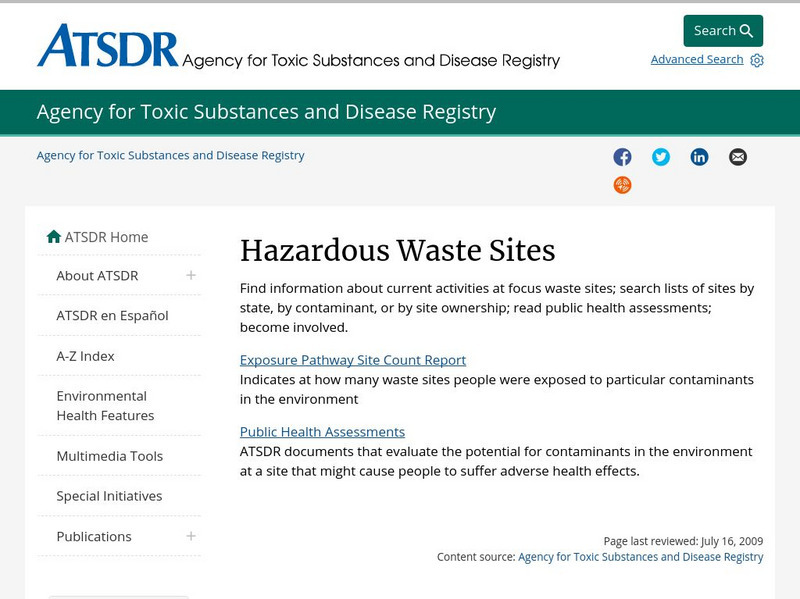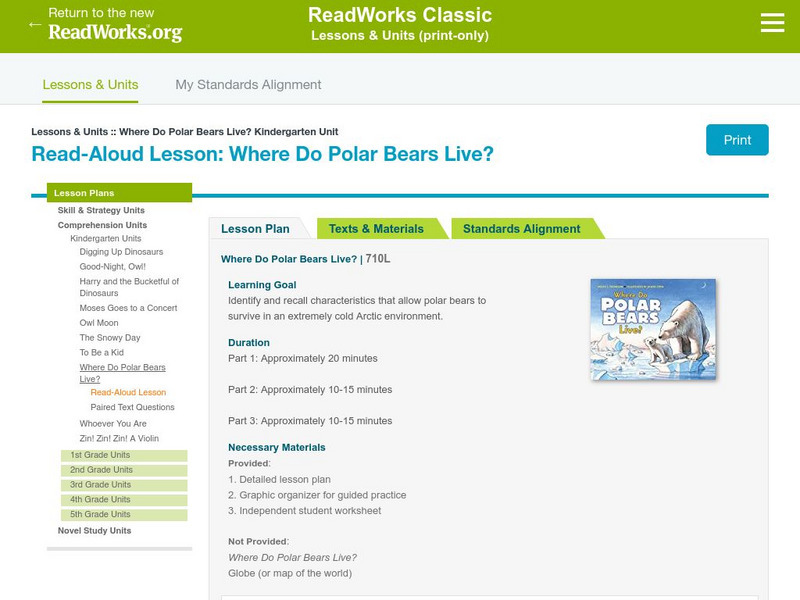TED Talks
Ted: Ted Ed: Could We Survive Prolonged Space Travel?
Prolonged space travel plays a severe toll on the human body: microgravity impairs muscle and bone growth, and high doses of radiation cause irreversible mutations. As we seriously consider the human species becoming space-faring, a big...
Woods Hole Oceanographic Institution
Woods Hole Oceanography Institute: Hydrothermal Vents
Explore actual photographs of the organisms and geologic structures of an oceanic hydrothermal vent. Additional links provide information about many of the physical properties of this extreme environment.
National High Magnetic Field Laboratory
Magnet Academy: Low Temperature Physics
Why do physicists want to study things at temperatures so cold atomic motion almost comes to a halt? And how do they create such frigid environments, anyway? Read on for the what, how and why of low temperature physics.
Geographic
Australia Geography
Many facts and statistics concerning Australia's geography, including climate, terrain, elevation extremes, natural resources, and environmental issues.
US Environmental Protection Agency
Epa: Natural Disasters: Drought
A look at some real-world issues as well as the scientific research and technology used to support the EPA's mission to protect human health and safeguard the natural environment.
Centers for Disease Control and Prevention
Centers for Disease Control: Atsdr: Superfund Hazardous Waste Sites
Extremely detailed look at the dangers associated with the hazardous and solid waste sites in the U.S.
University of Colorado
University of Colorado: Heritability
This site from the University of Colorado at Boulder provides two good definitions for heritablitity. It also provides a short list of the "five important attributes about estimates of heritability and environmentability." The site also...
University of Texas at Austin
University of Texas: Human Environmental Interactions [Pdf]
Inspired by Hemispheres' 2004 Teachers' Summer Institute, People and Place: Human-Geographic Relations, this curriculum unit was designed to address human adaptation to and modification of the environment. How have humans adjusted to...
Science Education Resource Center at Carleton College
Serc: Investigative Case: Protistan Tales of Atlantic White Cedar Swamps
A WebQuest where learners explore microbial diversity by looking at the extreme habitat of the Atlantic White Cedar Swamp. Students will learn about protists through personification theme of Aesop's Fables. At the end of the lesson,...
Trinity University
Trinity University: Inherited Traits Versus Learned Behaviors [4Th Grade]
In this extremely detailed unit, young scholars will learn the about innate and learned characteristics in animals and humans through a series of teacher and student-led discussions, readings, reflections, learning activities, and...
Read Works
Read Works: Read Aloud Lesson: Where Do Polar Bears Live?
This lesson is a close reading of "Where Do Polar Bears Live?". After reading the book to the class, students will be able to identify and recall characteristics that allow polar bears to survive in an extremely cold Arctic environment....
CK-12 Foundation
Ck 12: Life Science: Types of Archaea
[Free Registration/Login may be required to access all resource tools.] The first archaea described could survive in extremely harsh environments in which no other organisms could survive. As a result, archaea are often distinguished by...
TED Talks
Ted: Ted Ed: Should We Eat Bugs?
What's tasty, abundant and high in protein? Bugs! Although less common outside the tropics, entomophagy, the practice of eating bugs, was once extremely widespread throughout cultures. Insects hold promise for food security and the...
Curated OER
Unesco: Italy: Monte San Giorgio
The pyramid-shaped, wooded mountain of Monte San Giorgio beside Lake Lugano is regarded as the best fossil record of marine life from the Triassic Period (245-230 million years ago). The sequence records life in a tropical lagoon...












